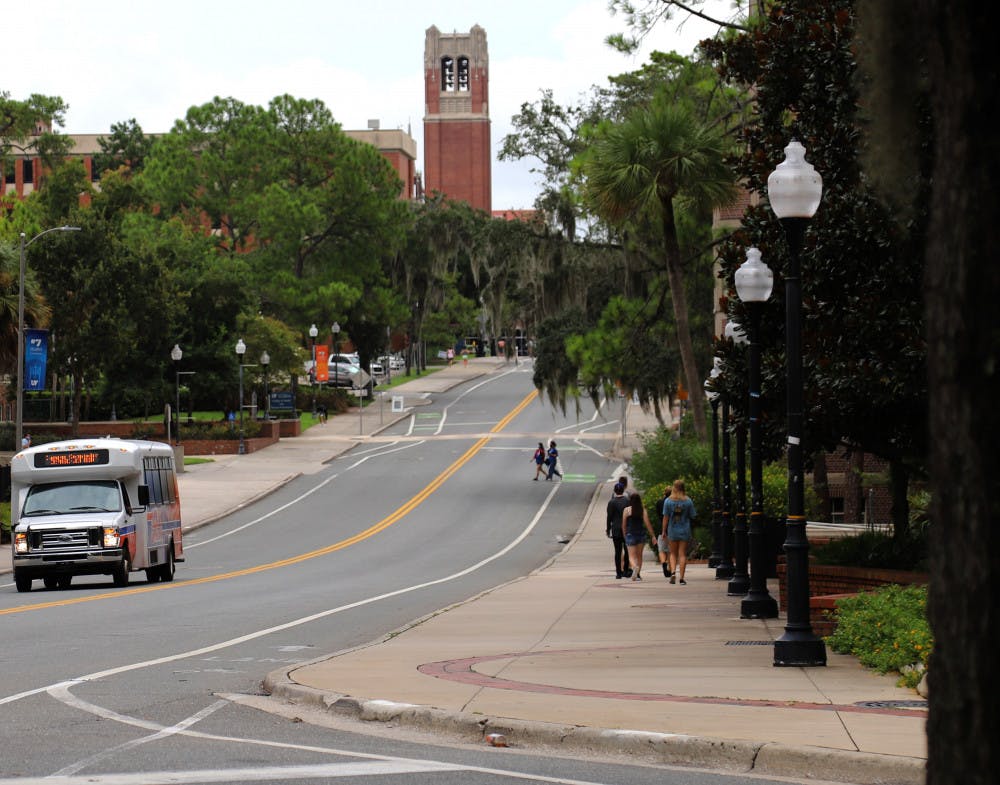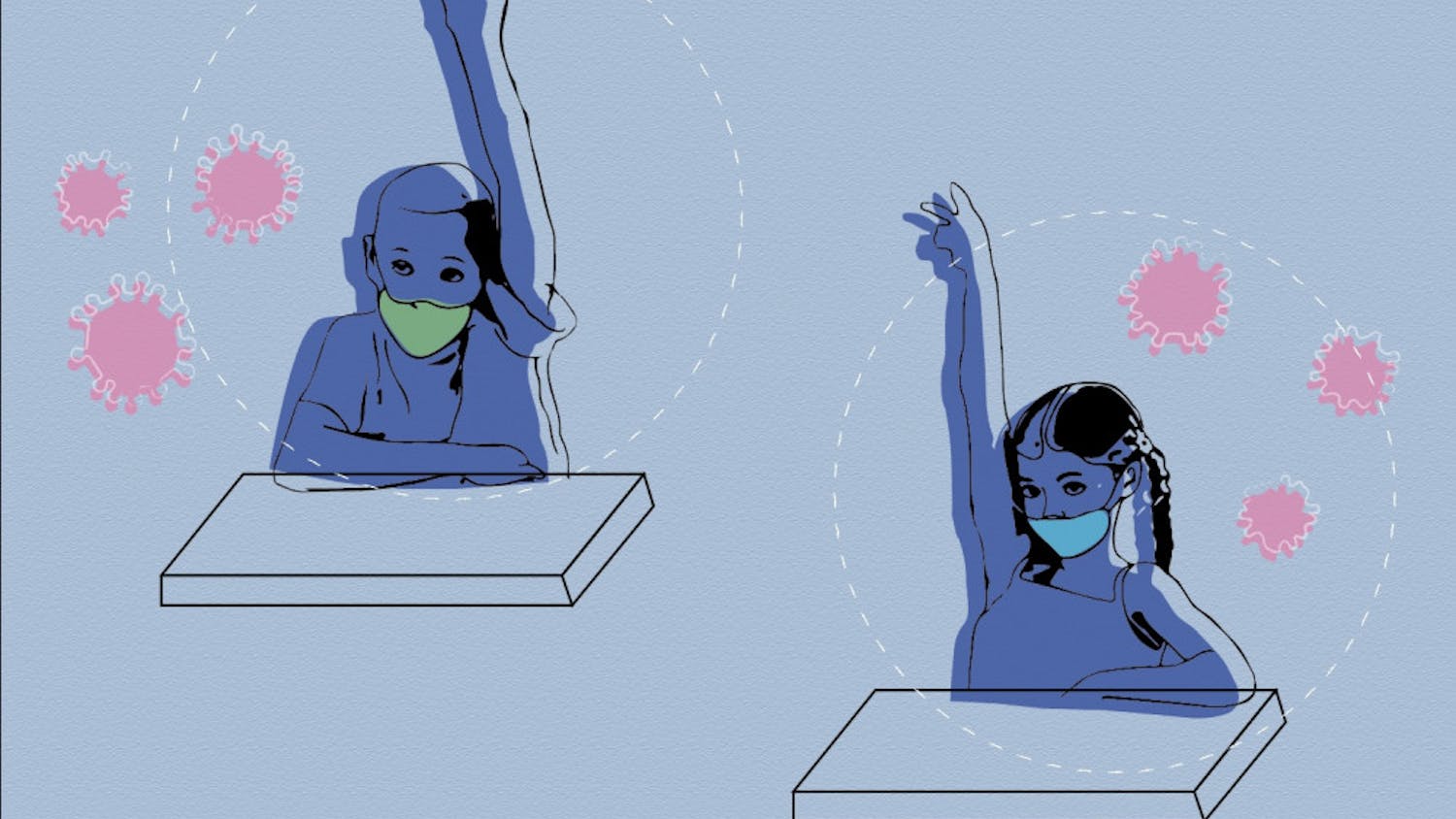Recent wastewater testing found traces of COVID-19 on campus.
A UF Health Screen, Test and Protect email sent Thursday morning warned students of COVID-19 found in the wastewater around a residence hall or Greek house. The email was sent along with a text alert to students living near Mallory Hall, informing them of traces of COVID-19 detected in the area’s wastewater. The hall is near Sorority Row next to Yulee, Reid and Cypress Hall.
A UF Health Screen, Test and Protect email sent Thursday morning warned students of COVID-19 found in the wastewater around a residence hall or Greek house. The email was sent along with a text alert to students living near Mallory Hall, informing them of traces of COVID-19 detected in the area’s wastewater. The hall is near Sorority Row next to Yulee, Reid and Cypress Hall.
The message urged students to take a free saliva COVID-19 test within two days of the email. In the first week of July, UF averaged a seven-day 1-2% COVID-19 positivity rate, which has remained that low through the majority of the summer.
“I didn't really know what the email was about, initially I was just a little surprised,” Michael Lunin, an 18-year-old biology freshman, said. “I didn't really understand what they were asking of us or what they were saying, it was a little confusing.”
Monitoring the wastewater helps UF identify locations where the virus may be present, even if people may not show any symptoms, according to the email.
UF Health spokesperson Ken Garcia wrote wastewater testing is a part of the campus’ COVID-19 surveillance. The efforts began as a result of the outbreak of COVID-19 Fall 2020.
Wastewater surveillance will continue for the Fall semester to monitor and contain any viral spread of COVID-19, UF spokesperson Steve Orlando wrote in an email.
“Given that not all students are vaccinated, it is expected that there will be positive cases on campus,” he wrote.
He wrote students who are vaccinated should not be concerned about the traces of COVID-19 found in the wastewater. He encourages students who are not vaccinated to wear a mask and receive the vaccine at any of UF’s free locations.
Wastewater Analysis and Tracking for Community Health, or GatorWATCH, was created April 2020 to monitor wastewater found in UF residence halls, campus apartment complexes and fraternity and sorority houses, according to a UF News release.
Created by public health, microbiology and environmental toxicology experts with medical and facilities personnel, GatorWATCH alerts UF Health Screen, Test and Protect if any traces of the virus are found.
Joseph Bisesi, an environmental toxicologist, wrote his team is testing the sewage from each residence hall three times per week. The locations are based on occupancy of the buildings and their ability to isolate samples. Occupied off-campus halls like Infinity Hall and halls not isolated from other buildings, like Jennings and Yulee Hall, are not able to be tested.
Anna Olliff, an 18-year-old psychology freshman, lives in Mallory Hall. After receiving the email, she noted that masks were not enforced on campus since May.
“So, I shouldn't be that surprised that COVID followed us here for the summer,” Olliff said.
Kyla Brewer, a 17-year-old UF health science freshman, has lived in Mallory Hall since the start of Summer B.
“I get that I'm supposed to do this but how and where do I go?” Brewer asked.
The email informed students how to receive the test. Students must go to ONE.UF, complete the screening questionnaire and schedule a test. The results will be emailed between 48 to 72 hours and appointments open daily at 10 a.m.
“I think none of us know what exactly to do or if it's mandatory,” Brewer said. “More information is probably necessary.”
Contact Isabella Douglas at idouglas@alligator.org. Follow her on Twitter @Ad_Scribendum
Alexander Lugo contributed to this report.

Isabella Douglas is a fourth-year journalism major and the Fall 2023 editor-in-chief for The Alligator. She has previously worked as the digital managing editor, metro editor, criminal justice reporter and as a news assistant. When she isn't reporting, she can be found reorganizing her bookshelf and adding books to her ever-growing TBR.






